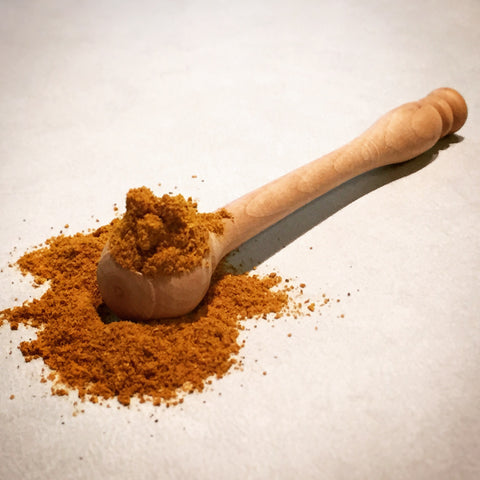
Turmeric is a distinctive spice, both in color and flavor. Like many other spices, it has had a multitude of uses in folk and alternative medicines throughout history however modern medicine has done little research to corroborate ancient theory. It has been used both internally and externally and has a long history of use in Ayrvedic medicine to purify and move the blood, as well as for a host of various ailments. It is well known as an effective anti-inflammatory, which may be why turmeric can be credited with being so effective against so many diseases.
The main active ingredient in turmeric is called curcumin and studies have shown that this component is able to subdue a protein called NF-Kappa B which may control as much as 98% of all modern diseases including cancer, arthritis, Alzheimer’s, and multiple sclerosis as well as many others. NF-Kappa B is a protein that promotes abnormal inflammatory responses in our bodies and curcumin is effective because it is a powerful anti-inflammatory. Clinical research states that diets containing turmeric or the extracted curcumin work on the molecular level by protecting and stabilizing biomolecules.
Helpful for heartburn and upset stomachs
Because it is such a powerful anti-inflammatory, it may come as no surprise that studies have shown that turmeric may be helpful in battling heartburn and upset stomach.
Heart attacks
Another study indicated that curcumin had a particular ability to prevent heart attacks in bypass patients when taken a few days prior and post-surgery. Instances of heart attack were decreased from 30% of bypass patients to 13% of bypass patients still recovering in the hospital.
Diabetes
In yet another study, curcumin was given to patients with prediabetes and was found to delay the onset of Type 2 diabetes. Over a period of 9 months, a group was given either a curcumin supplement or a placebo. At the conclusion of the study, 13% of the placebo group was found to have diabetes, which none of the group given curcumin was.
Joint pain
Chalk up another win for the anti-inflammatory powers of turmeric and curcumin, because it seems to work just as well as ibuprofen in patients with knee osteoarthritis.
Cancer fighting ingredient
Studies on the ability of turmeric and curcumin to fight cancer have not progressed to measuring its efficacy on humans, but in the lab and on animals it shows great promise. According to the American Cancer Society, curcumin has the ability to interfere with “several important molecular pathways involved in cancer development, growth and spread.” It has also been shown to kill cancer cells and shrink tumors in lab settings.
Brain health
Curcumin isn’t the only compound in turmeric that may be beneficial. Something called Aromatic Turmerone, or Ar-Turmerone may help the repair of stem cells in the brain. These stem cells are important, because they are involved in the recovery from stroke and Alzheimer’s, both of which are neurodegenerative diseases.
Western medicine has only begun to study many herbs that have been used by ancient and traditional cultures worldwide, with beneficial uses that have been observed over millennia. This is true with turmeric and its long history of use in Ayurvedic medicine, as it is with many other herbs and spices, many of which can be found in our spice cabinet. I have covered a few of the uses that have been proven through Western studies, but that should not discount the power of generations of observation. Ultimately, we should strive to eat a healthy, varied diet that includes a little bit of everything. Or, as my mom would say: eat a rainbow.
